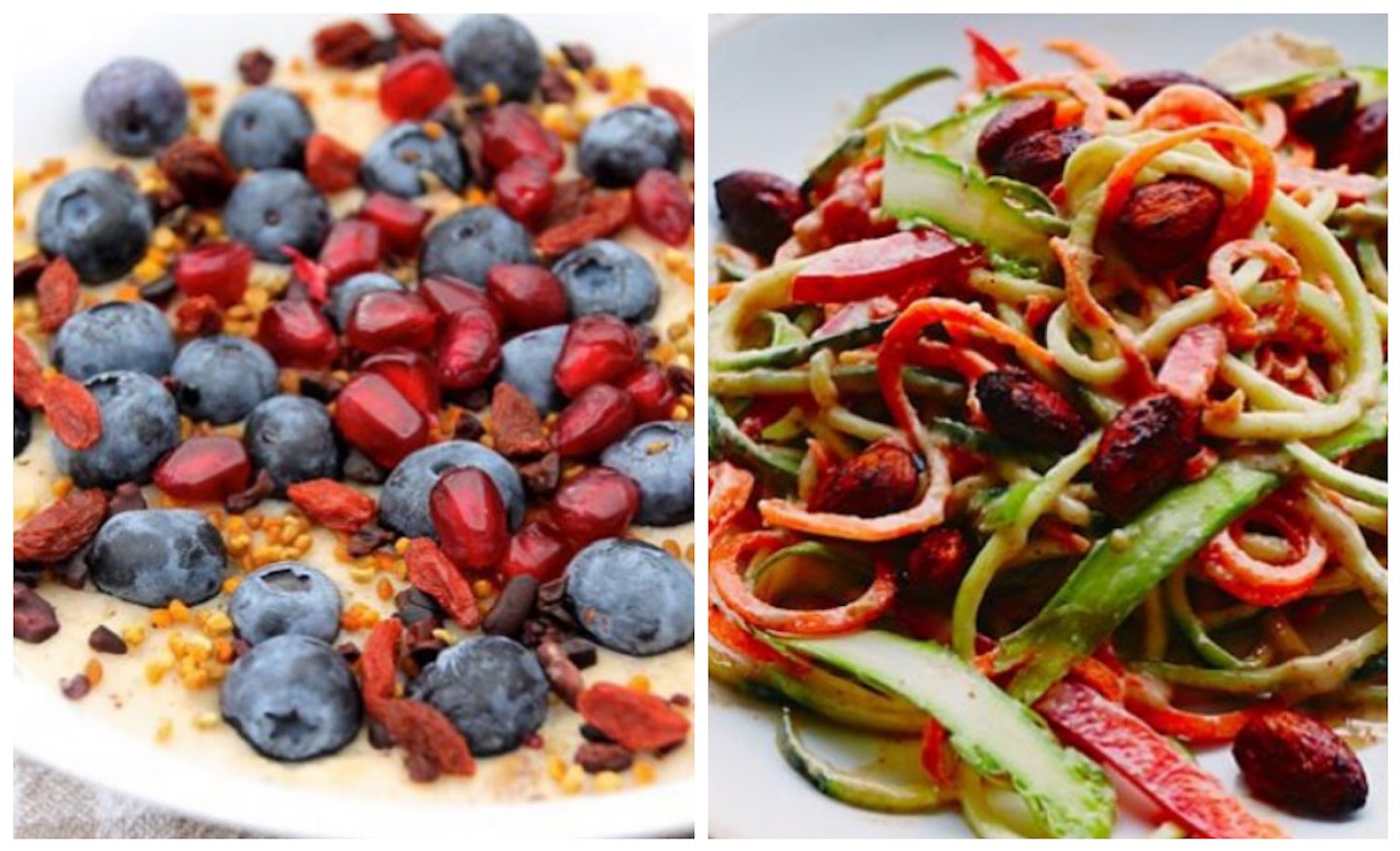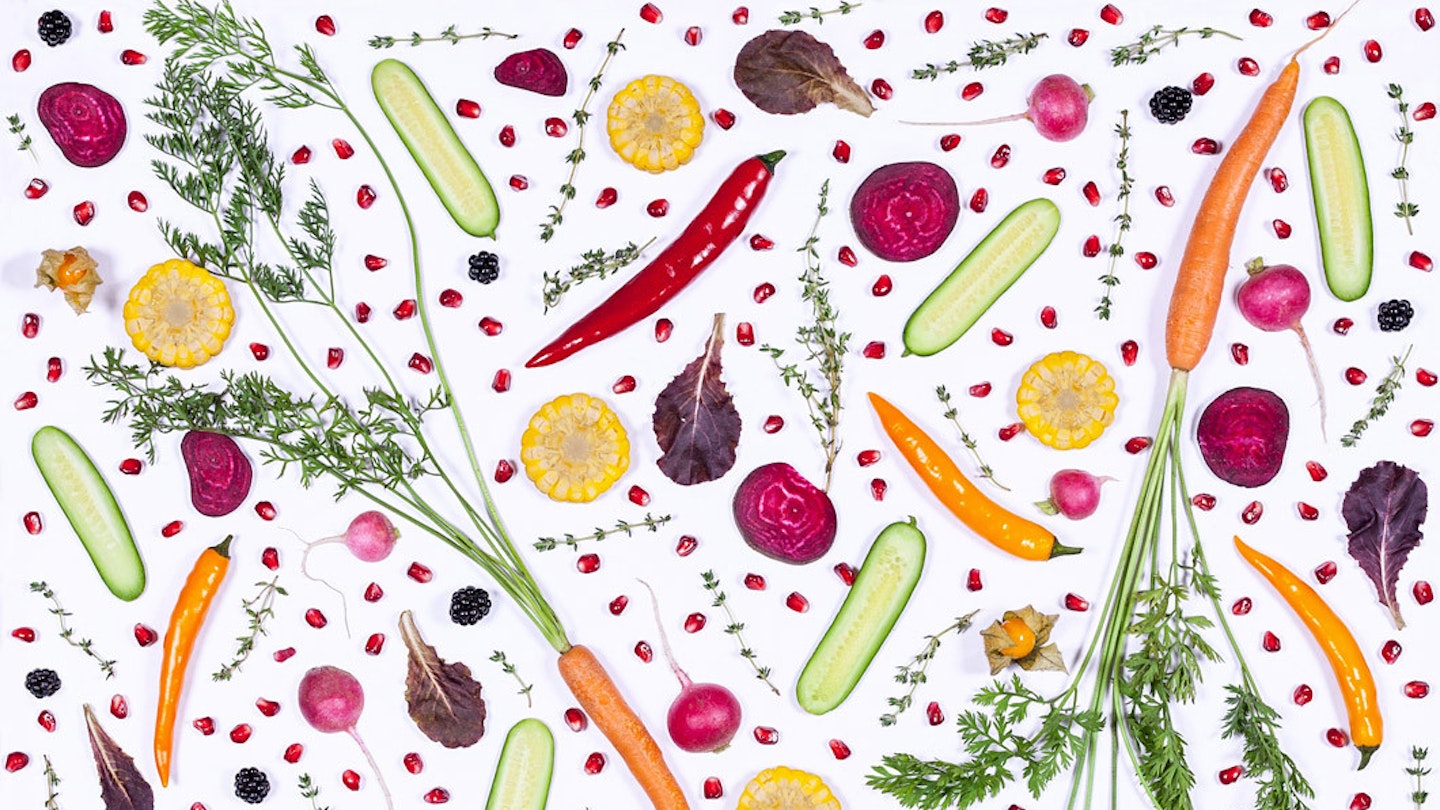Thinking of going vegan? Making the switch from omnivore to vegan is quite the lifestyle shift.
Being vegan means complete abstention from eating or drinking any animal-based foods or animal by-products, and for some, it means avoiding them in other everyday products, like clothes and makeup.
There's lots of advice out there on going vegan, and trying to navigate so many different points of view and theories can turn into quite the headache. So to put the record straight, we grilled Eve Kalinik and Kamilla Schaffner, two leading clinical nutritionists, on what you need to know if you want to go vegan.
With a vegan diet, how do you get enough vitamins?
Eve explained, “With vegan diets, the main thing is ensuring you're making up for what won't come readily in your diet anymore. Certain nutrients such as calcium, which is readily found in dairy products, will need to come from sources like sesame seeds, almonds, pak choi, broccoli and white beans. Iron may also be challenging, because plant-based sources of iron like beans, tofu, tempeh, and dark green leafy veg are not as readily absorbed as the iron found in meat."
"I would encourage my clients to have these foods alongside eating Vitamin C-rich foods such as lemon or peppers (Vitamin C helps your body absorb iron from non-meat sources). Vegan diets may also lack Vitamin B12, (Vitamin B12 comes from the bacterial synthesis of animal protein), so it may be necessary to take supplements."
"Or, you can add in things like nutritional yeast flakes fortified with B12, which give a cheesy flavour to dishes (without the cheese!) or adding spirulina powder into morning smoothies."
Kamilla added, "Vitamin B12 is vital for biochemical processes like the metabolism of fats and carbohydrates, maintenance of bone marrow, DNA synthesis and particularly, nerve impulses. So for many vegans, deficiency in Vitamin B12 may result in chronic inflammatory conditions, and in severe cases, the degeneration of peripheral nerves, depression, a loss of memory and mood swings to name a few."
Kamilla prefers her clients taking Vitamin B12 as a supplement, noting, "My advice to my vegan clients is to take a supplement with the highest quality Vitamin B12. For an appropriate dose, be sure to consult a clinical nutritionist to avoid taking sub-standard form of this vitamin."

Vegan protein and vegan protein powders - are they worth the hype?
This is a hot button issue – most people think of piles of steaks and eggs as the way to go in order to up your protein intake. As well as being important for muscle development, protein is essential for hair and nail growth, and protecting your organs and blood. Eve told us, “You can get protein from foods such as nuts, seeds, peanuts, lentils, beans, tofu or tempeh, and pseudo-grains such as quinoa, buckwheat and amaranth.
"You should have a protein serving at each meal. You should also include plant-based sources of Omega 3 essential fatty acids (ed note. these are anti-inflammatory, help with cholesterol, aid brain and nervous tissue redevelopment to name a few). You can find these in flaxseed and flaxseed oil, as well as walnuts.”
Kamilla added, “A great idea is to go for vegan protein powders blended into healthy smoothies: rice and hemp protein powders are excellent for vegans.”
When it comes to vegan food, how do I avoid carb-loading?
As Kamilla explained, being vegan doesn’t automatically mean your diet is saintly. “I see a lot of patients saying they are very healthy vegans, but all they really eat is avocado toast, tomato sauce-based pasta and energy balls (usually a mix of dried fruits and nuts). This type of vegan diet becomes carbohydrate-heavy, which can lead to weight gain,” said Kamilla.
“This type of vegan diet totally lacks essential fatty acids, protein and healthy fibre. As a result, I see everything from chronic fatigue, muscle cramps, to very dry skin and low thyroid function in these vegan patients.”
“The best way to look at your vegan plate is to have a whole spectrum of vegetables: all types of greens, brassicas, tubers. Being a vegan is really about eating a rainbow of colours at every opportunity.”

What's a truly balanced vegan diet?
With a diet so reliant on vegetable-based products, it can be hard to get the balance right. Kamilla advised “Include high quality vegan sources of protein and 'superfoods': quinoa, spirulina, mushrooms, chia, amaranth, various seaweeds, lentils and beans are all fantastic. Moreover, when you combine foods like rice and lentils, you get what is referred to as a ‘complete protein’, meaning it has all nine essential amino acids, so speak to your nutritionist about combining your food correctly.”
“Look at healthy fats, too: sesame seeds, pumpkin and sunflower seeds, walnuts, almonds, cashews, and olives are all rich in good fats.”
How do I maintain good bone health as a vegan?
It’s easy to forget about bone health in the years after adolescence and before old age. However, Kamilla cautioned against leaving it to one side, saying, “With vegans, who have no dairy present in their diet, your calcium intake has to be supported in the form of a high quality calcium supplement. Make sure you're regularly eating calcium-rich foods (broccoli, almonds, tofu, green leafy vegetables are all great), together with Vitamin D-rich foods.”
“Most vegans are deficient in Vitamin D, due to the fact that apart from sprouted seeds, Vitamin D is only present in animal protein foods.” Calcium is the backbone (sorry) of good bone health, and weak bones will leave you more prone to injury, arthritis and osteoporosis."
